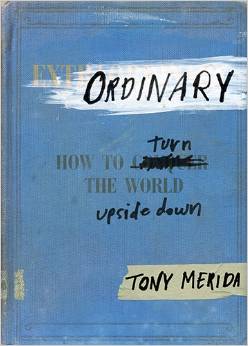Ordinary:
Customary. Usual. Normal.
These are the words that define ordinary. And, if we are honest with ourselves, we are all, well, ordinary. Yes, there are some extraordinary characteristics we have each been given. But, on the whole, we are pretty ordinary. Customary. Usual. Normal.
But, sometimes we tend to use this reality to excuse us from doing the extraordinary–from doing things that “make a difference”, as trite and cliché as that sounds. We hide behind sentences or thoughts such as “I’m nobody–I can’t do anything to change that situation.” and “I’m not special (or smart, or popular, or ?), no one will listen to me.”
We use words similar to these to excuse non-action in our lives (combined with other words like “I’m too busy.” and “I can’t afford to help anyone.” and “I have enough problems of my own.”). By doing so, we give ourselves permission to ignore much of what Christ taught in scripture: We are to love our neighbors. We are to “look after orphans and widows” (James 1:27), and we are to be a voice for the voiceless.
Tony Merida addresses this in his new book “Ordinary: How to Turn the World Upside Down”.
This is a small volume; it only took me two days to read; however, it’s going to take me awhile to chew on the premises he presents. His words are few, but they are densely packed with sound scripture analysis and practical applications. From hospitality in our homes to providing orphan care; Merida stirs the pot and pushes the envelope, calling us to action. This stirring, is a good thing. Comfortable? No. Needed? Yes.
One of the (many) sections I highlighted in this book include the following, in which he is referring to James 1:27:


